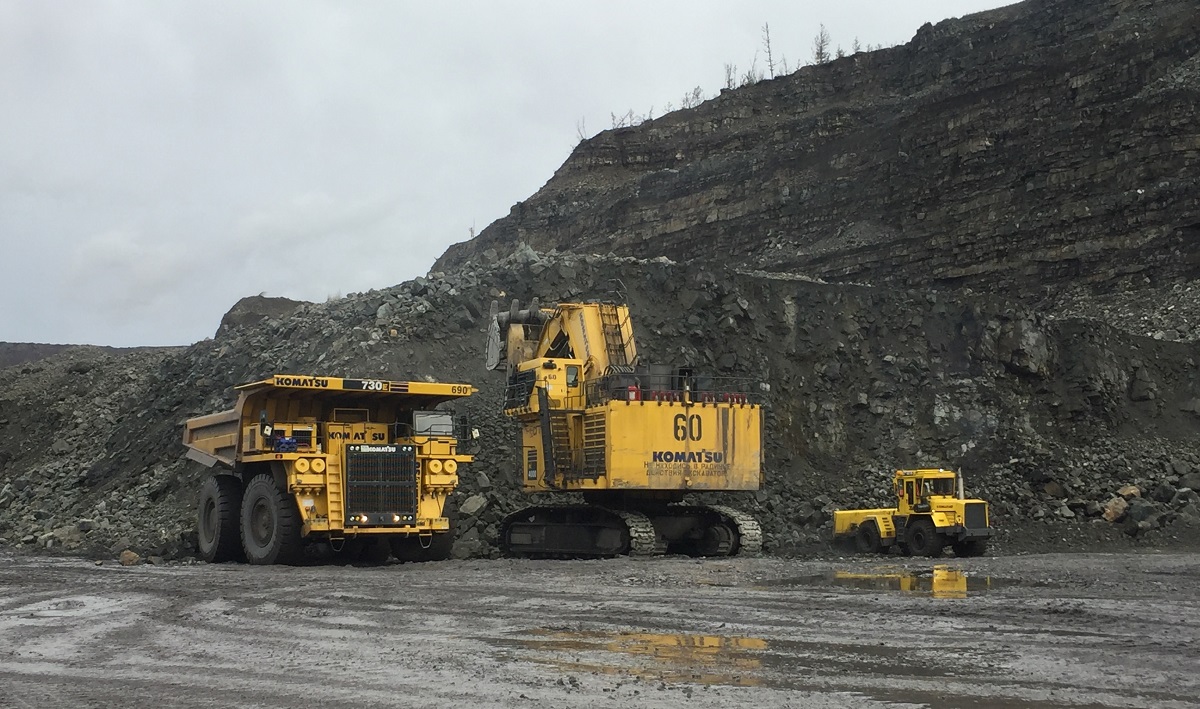The Moscow Gold Rush
New mines are constantly being opened in Russia, without too much concern about the environmental impact. Already in 2021 Russia was producing 346 tonnes of gold, exporting 87% of the precious metal. And today, Deputy Finance Minister Aleksej Moiseev declares that 'gold bars must replace foreign currency', which is now unaffordable.
Moscow (AsiaNews) - While the damage caused by gold mining is being debated all over the world, new mines are constantly being searched for and opened in Russia. The ecological damage from the exploitation of gold deposits is of a level that is difficult to calculate, and because of the worsening environmental conditions, people are forced to leave the mining areas, where teams of miners and prospecting groups are flocking. The costs are loaded onto the federal budget, and the money all ends up in state projects, starting with war projects, without bringing any benefit to local people.
In February 2023, a study was published by the University of Oxford, authored by Steven Lezak, a lecturer in the School of Business and Environmental Protection, showing the need to reduce gold mining. And this is not only because of the ecological damage, but also for economic reasons: the precious metal can be obtained through laboratory operations, at least for the needs of medicine and industry.
According to the scholar, 'the ecological costs of the mining industry are more evident today than ever before, and the gold industry stands out for the intensity of its harmful action'. Unlike fuels, which at least heat houses and produce electricity, gold production only causes extremely harmful effects on people's daily lives. Gold mines expel 'more greenhouse gases than all scheduled flights between European countries', Lezak assures.
Mining requires chemical reagents such as cyanide, which pollutes the surrounding soil, groundwater and even open water reservoirs. A cyanide concentration of one microgram per litre can be deadly for fish. In many countries, mercury is used for gold mining, which is necessary for the amalgamation process, and in general the gold industry produces almost 40% of the world's mercury waste, which is why thousands of miners suffer from chronic intoxication.
With all this, only 7% of the gold mined worldwide is used for the needs of industry, technological development and medicine, with the rest going to bank vaults and jewellery stores. One of the world's largest owners of gold remains the US government, with reserves worth USD 11 billion. Since 2010, the World Bank has invested over 800 million dollars in gold mines in Africa, Asia, Latin America and the Pacific Islands.
If gold mining were to stop, Lezak assures us, it would not restrict its trade; on the contrary, it would increase the reserves, which are sufficient to guarantee all kinds of international operations. At present, almost a quarter of the world's annual gold demand is guaranteed by secondary processing, where no mercury is used, and no negative ecological burden is added.
In 2021, Russia produced 346 tonnes of gold, exporting 87% of the precious metal, which now more than ever protects it from the constraints of international sanctions. Annual earnings exceed USD 18 billion, almost 8% of all export earnings. With these figures, Russia ranks fifth in the world's gold reserves, and third among mining countries, exploiting the infinite resources of its Asian territory, which is difficult to excavate and has little respect for its environmental integrity.
In late 2022, Deputy Finance Minister Aleksej Moiseev declared that 'gold bars must replace foreign currency', which is now inaccessible to Russian finances. He reports the demand for gold on the international market has increased at least sevenfold in the past year. The gold war threatens the planet even more than drones and bombs.
22/09/2022 08:55
21/06/2022 09:32







.png)










